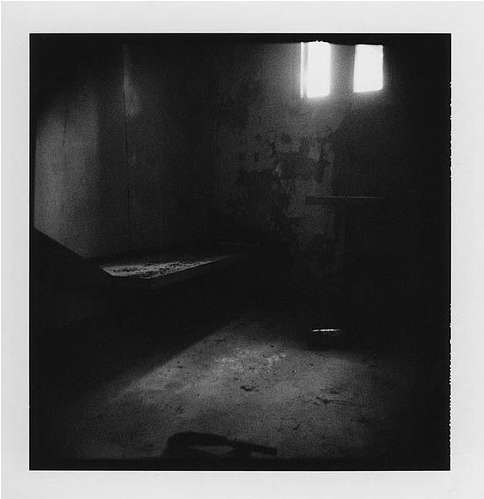FWP:
SETS == EK; HANUZ
BONDAGE: {1,5}
Nazm's point is that tangii , 'narrowness', the quality of a prison cell, at once evokes its metaphorical extension into 'narrowness' of heart-- distractedness, sorrow, vexation, and general distress (see the definition of tang above). The afsurdah heart is melancholy (in feeling) the way a prison cell is chilly in temperature; and the way a prison cell is narrow (in shape), the heart is straitened and oppressed (in feeling).
Both prison cell and heart are dark and empty: Joseph has left the cell, the beloved has left the heart. But both are dimly (?) lit by a lingering ray: the cell by the last notional flicker of the light of Joseph's beauty, the heart by the triply distanced (as Bekhud Mohani points out) 'ray of the image of the thought' of the beloved.
Or else the image can be of Joseph in his prison cell: he is never quite alone, for even at his lowest ebb, the thought of the divine Beloved never leaves him. Similarly, the sad heart has a single little flicker of light and hope-- or maybe it's a big flicker, or some particular or unique or excellent flicker (see the definition of ek above). And it has it hanuuz -- which itself can mean either 'now' (this is a moment in time) or 'still' (this is part of an ongoing process).
For another abstractly-distanced 'thought of the beloved',
see {205,5}.

Nazm:
The word hanuuz implies that even when a thought is forgotten, some ray of it remains, and even in that ray is so much light that the heart is like the cell of Joseph. In this verse the word afsurdah has made manifest the heart's being a cell, and the same word also creates a reason for the forgetting of the beloved-- that is, when the heart became afsurdah, then how could the thought of the beloved exist? And narrowness [tangii] is a necessary property of afsurdagii -- this is the reason he called it a cell, because 'cell' is the name of a narrow chamber.
== Nazm page 11; Nazm page 12